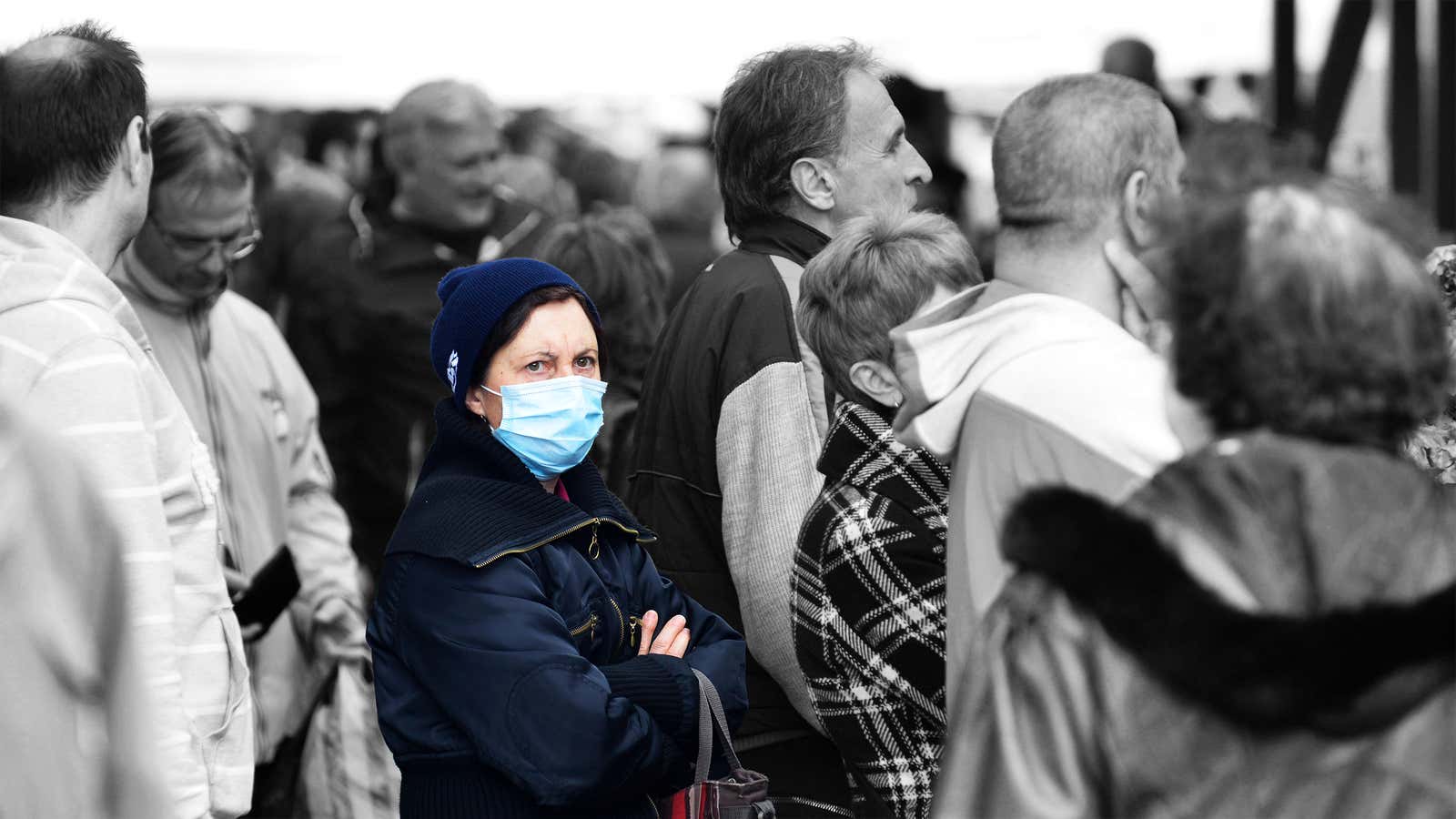We Need to Talk About This Danish Study “Masks Don’t Work”

A recent study of mask wearing in Denmark is spreading as if it proves that masks do not protect us. This is not what the study actually says.
I’ll go into the details below, but for now I would like to highlight a couple of lines from the document itself:
The most important limitation is that the results are inconclusive …
and
It is important to emphasize that this trial did not consider the effect of masks as a source control [protecting others from the wearer] or as a defense in an environment where social distancing and other public health measures are not working.
So if you are sharing this research to confirm your previously held belief that masks are silly and you don’t want to wear them, please stop. Now let’s see what the research actually was about.
What question was the study designed to answer?
A recently published study entitled “ The Effectiveness of Adding a Mask to Other Public Health Measures to Prevent SARS-CoV-2 Infection in Danish Mask Wearers” was conducted in Denmark in April and May this year.
The learning environment was not very similar to the world in which we live now. Cases were few and most people were not wearing masks. The country relied on social distancing as the main way to slow the spread of COVID-19, with the lockdown that began in March and lasted until May .
The question was: if we send people a box of masks and ask them to wear masks, will the risk of infection for masked people be drastically reduced? The study was not blind because obviously you know if you are wearing a mask. Participants tested themselves for antibodies and reported in a survey if they wore masks as instructed.
What did they find?
The researchers did not see the dramatic drop in infection they hoped for. Both groups – those who received boxes of masks by mail and those who did not – ended up having roughly the same infection rates.
Did they see a slight decrease in risk? It is impossible to tell. In a statistical sense, the study aimed to detect a 50% reduction in infections between the mask group and the control group. If masks reduce the risk by less – 25%? 10%? – the research could not find it.
This is why the main result of the study was a reduction of less than 50%, to perhaps even an increase in infection. This is a wide range of possibilities because the study was not intended to tell the difference between the two.
“The bottom line is that wearing a mask probably won’t halve your risk of infection. But that could reduce it by 20%, and this is taking shape across the country, where there is a massive epidemic, ”says epidemiologist Gideon Meyerowitz-Katz of the University of Wollongong.
What did not find
The study did not ask what happens if most of the people around you wear masks and you choose not to wear them. (At the time, wearing masks was rare in Denmark.)
The study did not ask what happens when you walk through life, shop and communicate without a mask. (Denmark was isolated for most of the study.)
The study did not validate the nationwide mandate to use masks (again, it did not).
The study did not test whether masks prevent the spread of coronavirus if you are sick. (He only looked at the risk of infection for the owner.)
The study did not directly test masks, but only talked about what happens when you tell people to wear them. (As Vinay Prasad wrote in MedPage Today , “Cake is both the dough and the oven temperature, and the public health recommendation is both the recommendation and whether people follow it.” This study did not share them.)
As the CDC recently clarified, we have other evidence that masks are likely to benefit the wearer . A Danish study complements our knowledge by saying that masks should not be expected to be of great benefit to the wearer. It also reminds us that people don’t always follow guidelines; Study participants were required to report whether they wore masks as recommended, and only about half said they followed the instructions exactly.
“Based on this study, it is wrong to say that masks do not work or are useless,” says Meyerowitz-Katz. He notes that mask mandates may still be of “great benefit to society,” even if the benefit to anyone is small. We kind of already knew that, didn’t we? Keep wearing the mask.